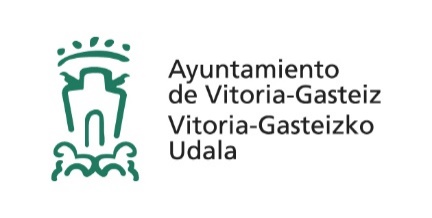About
Team Members
All collaborating organizationsFORTH (Coordinator)
Foundation for Research and Technology Hellas, GreeceThe Remote Sensing Lab of FORTH focuses on Earth Observation, studying environmental phenomena in urban and natural environments. FORTH leads the work on integrating the CLMS-Cities data portfolio at local level, developing a web-based interface to access CLMS, Copernicus Services, and third-party datasets needed for CO₂ emission modelling. It also supports model development and evaluation by providing data for urban form, vegetation, and mobility patterns, helping integrate CO₂ profiles into Urban Atlas layers. FORTH maintains strong collaboration between data provision, modelling, and demonstration activities to support operational urban workflows.
UWE
University of the West of England, United Kingdom
UWE Bristol is one of the leading public sector institutes in the South-West region of the United Kingdom for research and education in the fields of environment and technology. In CLMS-Cities project, UWE is leading the stakeholder interfacing to ensure that the co-designing of the CLMS-products meet the real needs of the Mission cities. In particular, UWE is involved in:
i) organising and managing the stakeholder engagement through stakeholder workshops, interviews and surveys,
ii) gathering and managing the user-oriented requirements for CLMS-Cities products,
iii) supporting the CLMS-Cities modelling, data and GHG inventory gathering and implementation of CLMS-Cities services,
iv) contribution to the demonstration workshops, evaluation and benchmarking, and
v) conceptualisation of future upscaling scenarios of CLMS-Cities products across European cities.
TECNALIA
Fundacion Tecnalia Research & Innovation, SpainTECNALIA is the largest centre of applied research and technological development in Spain, a benchmark in Europe and a member of the Basque Research and Technology Alliance. It collaborates with companies and institutions to improve their competitiveness, people's quality of life and achieve sustainable growth, thanks to a team of more than 1,500 people committed to building a better world through technological research and innovation. Its main scopes of action are: smart manufacturing, digital transformation, energy transition, sustainable mobility, health and food, urban ecosystem and circular economy. The city, Territory and Environment Business Area works with both public and private organizations to move cities and territories forward in facing the social, environmental and economic challenges through the use of data, technology and innovation in decision-making for urban and territorial planning and management. Specifically focused on energy transition, climate change mitigation and adaptation, as well as environmental quality and demographic changes, the research group combines domain knowledge with extensive data analysis capabilities. The contribution of TECNALIA to the project will focus on the development of the CLMS-cities interface, showcasing a downstream product chain leveraging on CLMS, and the replication of model implementation in Mission Label Cities.
University of Porto
Universidade De PortoThe University of Porto is one of the most prestigious higher education institutions in Europe and is recognized as one of the top universities in Portugal. With a highly qualified scientific community, U.Porto boasts an ecosystem of excellence, prominently reflected in its leadership position in major international academic and scientific rankings, contributing to approximately 25% of the national scientific output. FLUP mirrors this distinction and stands as a reference institution in higher education, scientific research, and cultural creation in the Social Sciences and Humanities. The institution's rich experience encompasses active participation in funded projects at both national and international levels (e.g., FCT, EU Framework Programmes), with ongoing involvement in over 30 projects. With a highly qualified faculty and research staff, FLUP operates within 8 Research Units, among which the Center for Studies in Geography and Spatial Planning (CEGOT) stands out, encompassing this project. CEGOT's objectives revolve around a geographical perspective of development, both in its conceptual aspects and in its articulation with spatial planning. It covers themes such as geomorphology, climatology, and hydrological dynamics; ecological dynamics of the landscape; natural risks; physical supports for spatial planning; urban geography and planning; economic geography, competitiveness, and innovation; health geography; tourism, heritage, and leisure.
Latitudo 40, an Italian company founded in 2018 as a spin-off of the University of Naples Federico II, is a leading innovator in Earth Observation (EO), AI, and geospatial analytics. The company provides geospatial solutions that help cities, businesses, and organizations address urban and environmental challenges. By combining satellite data with machine learning and predictive analytics, Latitudo 40 empowers stakeholders to make data-driven decisions for a sustainable and resilient future. The company's platform, EarthDataInsights, offers predictive simulations and actionable insights, helping cities optimize urban planning, improve energy efficiency, and enhance environmental management. As part of the CLMS-Cities project, Latitudo 40 contributes by improving CO2 emissions monitoring and providing valuable insights into carbon sequestration through satellite-based analysis. This supports cities in their efforts to reduce emissions and better manage urban greenery, helping them move toward climate neutrality.
The city of Vitoria-Gasteiz aspires to be climate neutral by 2030, a very ambitious goal based on a long-held conviction that sustainability is the way to improve people's lives without compromising the needs of future generations and without renouncing economic and social development and environmental protection. In this context, Vitoria-Gasteiz also aspires to become a resilient, metabolically-efficient and biodiverse municipality by 2030. It intends to foster a vibrant and committed social fabric in a safe, healthy and inclusive environment, within an attractive and prosperous economic system a challenge of our Vitoria-Gasteiz 2030 Urban Agenda (AU2030VG).
UNIBAS
University of BaselThe Atmospheric Sciences at the University of Basel researches the urban environment and its impact on meteorology aspects for more than 20 years. We focus on topics such as the modification of the radiation balance, the driving of turbulent exchange processes by the heterogeneous urban form and the anthropogenic greenhouse gas emissions. The main scope is on the micro- and local-scale on a half-hourly up to decadal by combining different techniques, namely in-situ measurements at various levels on CO2 flux towers with high-resolution Earth Observation data to derive models that capture the dynamics on a city scale and thus to gain valuable insights that are relevant, transferable and reliable. Our responsibility within the CLMS-Cities project is primarily on the development of an emission model based on data sources from CLMS and project partners, to evaluate the output with flux tower measurements and to integrate it with the existing data set of the Urban Atlas. This model will be then transferred to other EU mission cities and benchmarked with emission inventories to ensure that the model output will be reliable and relevant to the involved stakeholders such as city planners now. Because the model is developed in a modular manner and focuses on the EEA-defined emission sectors, it can be extended and regularly updated in line with the Urban Atlas update interval to ensure its provided value in the future.
MindEarth operates in the fields of location intelligence and human remote sensing, generating and integrating data from proprietary street-view imagery, Earth observation products, and mobility datasets. We leverage artificial intelligence to combine complex spatial data and drive the digitalisation of geographic information related to cities, regions, and populations. Our services support the needs of international public agencies as well as businesses across a wide range of industries.








